I know it may sound and be tedious but once again we must touch on the subject of COVID-19. We are no longer going to explain what the virus is, how it is transmitted and the dangers, we are not going to talk about the incidence, we just won’t do it. We will talk about what it is like to travel in this new version of the world, in a version of travel during the pandemic world.
The change of movement
As we have said on previous occasions since COVID-19 spread around the world, all of our behaviors have been altered.

The way we work, the way we study, the way we shop, the way we relate to other people, the way we understand science, the attention we pay to diseases… absolutely everything shifted and changed almost overnight.
Within these changes, the simple act of moving from one place to another was greatly affected.
Since the vaccines began, and the scientific community emphasized that vaccination is one of the main ways to end the pandemic, steps have been taken to reopen the issue of travel.
Many people receive doses of the vaccine every day and taking into account the regulations of each government and what is proposed by the World Health Organization has begun to calm down and normalize, so to speak, the activities that we can do.
Talking to people
Thus we come to our central theme: travel during the pandemic. And to find out how people experience travel in these times of pandemic… we decided to go directly to talk to people, and these are some of the answers they gave us.
L.Viera: I like to start these conversations at the beginning …. so could you tell me your name and where you live?
Nadia: My name is Nadia, I’m from Costa Rica and I currently live in Berlin.
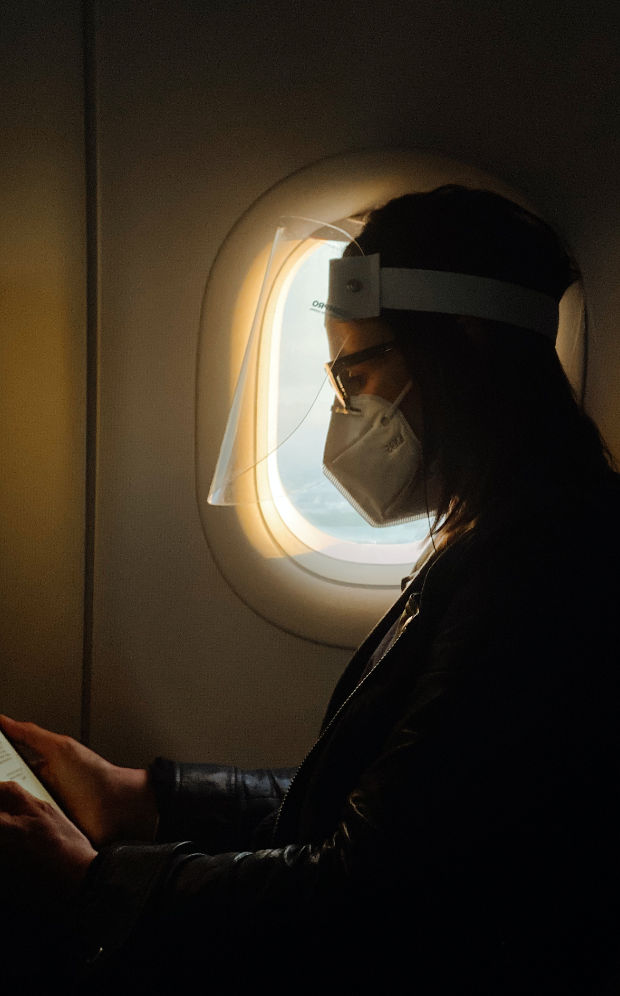
Lizzete Soto: Hi, my name is Lizzete Soto, I’m originally from the city of Urango, in the north of Mexico and I currently live in Berlin.
Sandra Sierra: Hello, my name is Sandra Sierra, I am Colombian and I live in France.
Milena Cruz: My name is Milena Cruz, I am Colombian and I live in London.
Ma. Elvira Gaviria: my name is Maria Elvira Gaviria, I am Colombian, born in Bogota, and I have been living in Marseille, in the south of France for exactly 6 years.
L.Viera: Well, tell me, have you been vaccinated?
Nadia: Yes, I have been vaccinated. In two days we are 14 days away from the second dose of Moderna.
Lizzete Soto: Yes, I was vaccinated with the second Biontech Pfizer vaccine on June 22nd of this year.
Sandra Sierra: I have already been vaccinated, with both doses.
Milena Cruz: I have not been vaccinated.
Ma. Elvira Gaviria: I am vaccinated against covid. I got the first vaccine at the end of May 2021 and I got the second dose at the end of June.
L.Viera:Were you afraid of getting vaccinated?
Nadia: I was not afraid to get vaccinated for many reasons. 1. I come from a family of doctors. 2. I believe in science and I think the process that was done, after reading, was sufficient, how in 12 months they really went through all the steps that used to take years. I trust that the work was done well. 3. I am more afraid of the disease than the vaccine.
Lizzete Soto: I was not afraid of getting vaccinated.
Sandra Sierra: at no time was I afraid of getting the vaccine, not even when they started saying they were developing it and testing it. I said: I can be one of the first to sign up for the vaccine.

Milena Cruz: I haven’t felt safe getting vaccinated. I haven’t vaccinated because I think at this point in time at the stage that the vaccine is at, I don’t think it’s mature enough to mass vaccinate different types of ages, medical conditions, etc. So it seems to me that we should know a little more about the vaccine, its consequences, in order to make a more informed decision.
Ma. Elvira Gaviria: I was not afraid to get the vaccine, on the contrary, I was eager to get it. I was pregnant and gave birth at the end of March this year. and although women were in the risk group, we were not entitled to the vaccine. but things have changed in France. from the second trimester onwards, you can get the vaccine while pregnant… that was not my case. I was vaccinated once I had already had a baby, but I was still breastfeeding, so I was vaccinated while breastfeeding.
It is all about restrictions
Although there are guidelines and organizations, such as the WHO, that provide ongoing information for deciding on travel issues, each country has absolute discretion in its decisions on what is allowed and what is not.
For example, on October 13, 2020, European Union Member States adopted a Council Recommendation on a coordinated approach to restrictions on free movement in response to the COVID-19 pandemic. The Recommendation was updated on February 1 and June 14, 2021.
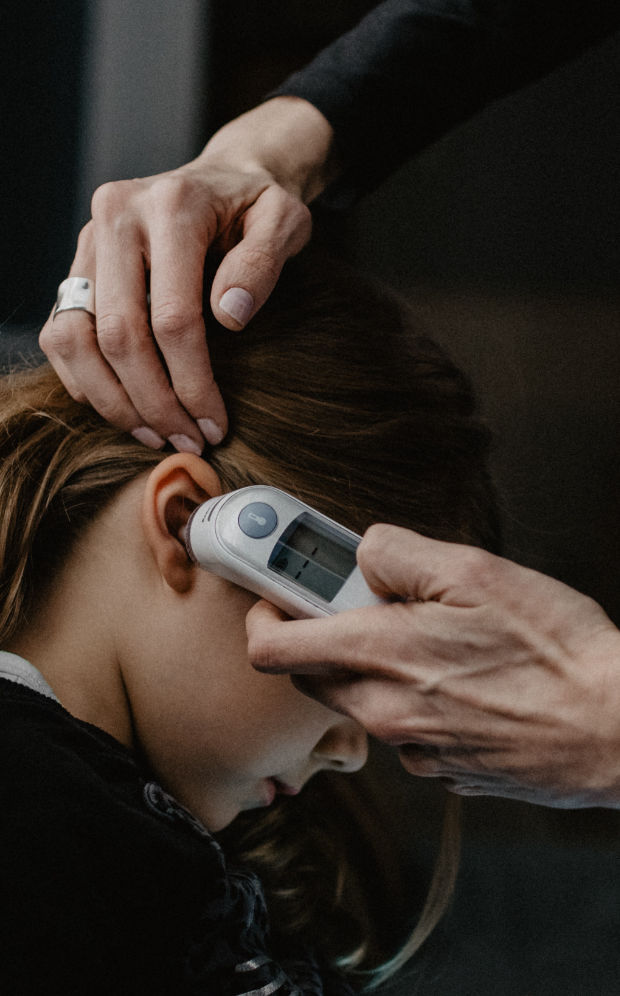
In addition, persons who are fully vaccinated with an FDA-licensed vaccine or a vaccine with a World Health Organization emergency use authorization can safely travel within the United States.
CDC recommends that the following steps be taken so that persons with a full dose of vaccination can safely travel within the United States:
During travel: a facemask covering the mouth and nose is required to be worn on planes, buses, trains, and other public transportation going to, entering, or leaving the United States, as well as in enclosed transportation hubs, such as U.S. airports and stations. Travelers are not required to wear a facemask in open areas of transportation.
After Travel: Monitor your health for the onset of COVID-19 symptoms; isolate yourself and get tested if you develop symptoms.
Comply with all applicable state and local recommendations and requirements.
On the other hand, if you are not fully vaccinated and travel is essential, they recommend the following behaviors
Have a viral test 1 to 3 days prior to travel.
During travel, it is mandatory to wear a mask covering the mouth and nose on planes, buses, trains and other public transportation to, from or within the United States, as well as in enclosed transportation hubs such as airports and stations in the United States.
It is important to avoid large crowds and maintain a distance of at least 6 feet/2 meters (about 2 arm’s lengths) from anyone not traveling with you.
Wash your hands frequently or use a hand sanitizer (with at least 60% alcohol).
After travel it is advisable to do a viral test 3-5 days after travel, stay at home and be quarantined for 7 full days after travel.
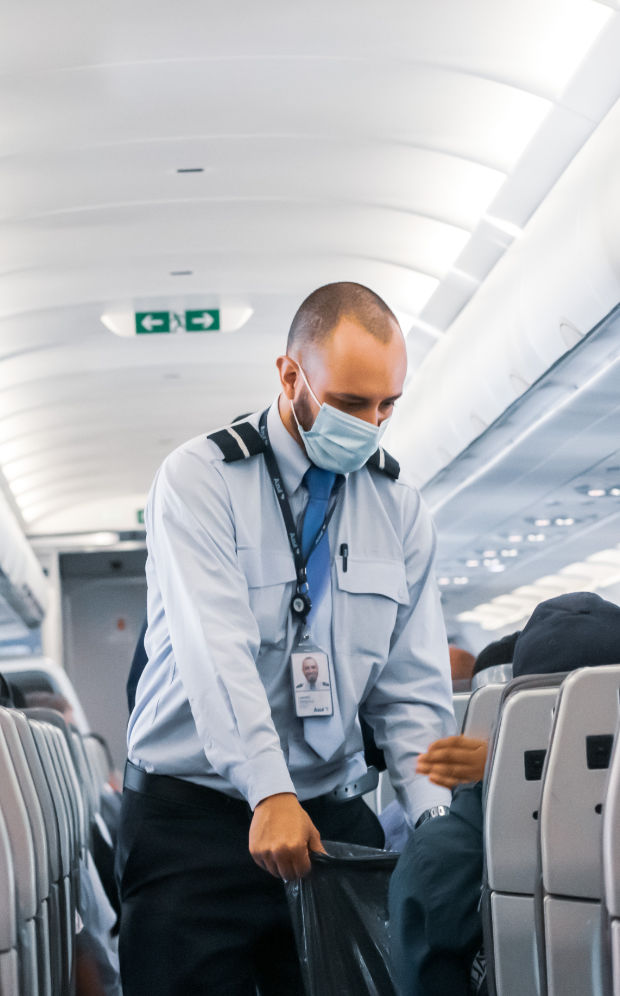
L.Viera: what do you think about the fact that you are not allowed to enter some countries based on the coviral vaccines you have received?
Nadia: I think it is fine because each country has the right to do its own studies and to accept or not the data from clinical trials.
Milena Cruz: the issue of vaccines is a bit complex, people can travel or not depending on the vaccine they have received, which makes the issue of coronavirus more complex.
Ma. Elvira Gaviria: vaccination seems to be a bit difficult and very political because clearly, vaccines that are developed by European and North American laboratories have to endorse almost automatically ….. other vaccines that can be very similar, the Russians, the Chinese, Latin American countries have had access to it …we have to be satisfied with vaccines such as Sinovac and receive donations from countries such as the United States. … so, it seems that it is really very political….. this limits people who have family in Colombia…. makes life very difficult…. in my case, for example, my family could not come for the birth of my daughter… it is very difficult to travel if you do not have the vaccine you need because politically it is not accepted.
Lizzete Soto:I find it a bit harsh, the fact that in many countries you don’t have the option to choose which vaccine you want, …. is a bit irresponsible on the part of the authorities worldwide.
Just travel
Now more than ever you have to be very cautious when traveling. Therefore, when packing your suitcase for your trip, it is advisable to take the following items with you
Face masks Tissues Alcohol-based hand sanitizer (at least 60 percent) Disinfectant wipes (at least 70 percent alcohol) for cleaning surfaces Thermometer
L.Viera: Have you traveled since the whole covid-19 thing started?
Nadia: yes, I have traveled because my family is split between Costa Rica, the United States and Germany.
Lizzete Soto: yes, I have traveled.
Sandra Sierra: yes I have traveled since the whole covid issue started. in December 2019 when we already had news that the virus was in China, I went to Colombia. I think many countries did not even imagine that this virus was going to result in a pandemic.
L.Viera: with my family we have traveled to local places, up to two hours away from where we live. mona: in terms of travel, during the COVID period we have done some.
It is very important to check if there are any restrictions, quarantine or testing both in your area and in the places you plan to visit.
One thing that is key at this time is to know that travel policies can change on short notice and this could alter your travel plans.
For this reason, you should check ahead of time on the transportation, food and lodging options available at your destination. Some businesses and services, such as public transportation, stores, restaurants and popular tourist attractions, may be partially or completely altered.
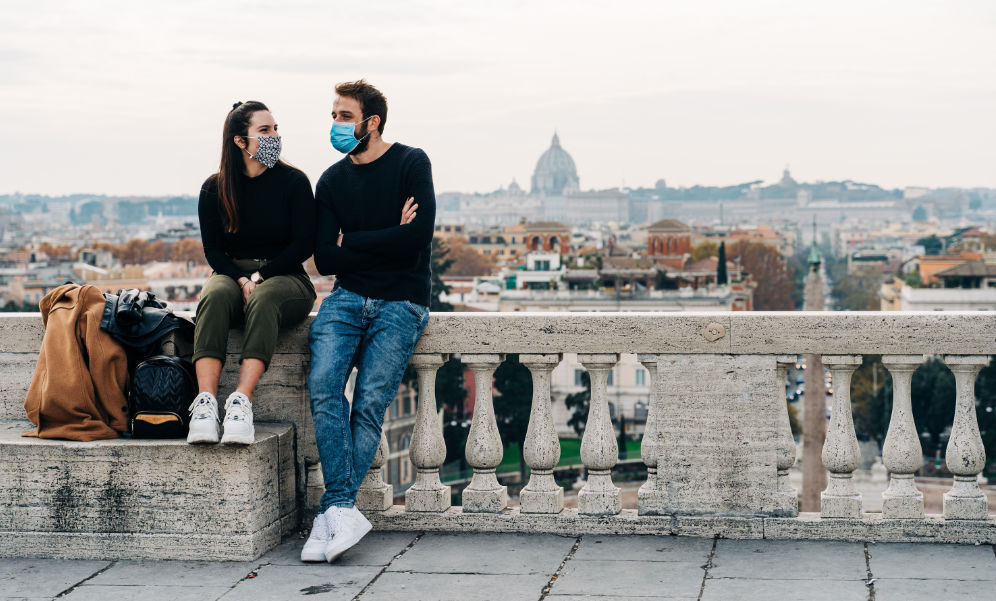
L.Viera: and where have you traveled to?
Nadia: we have mainly traveled between Germany and the United States. because actually Costa Rica was closed for many months, which meant there were no flights. so you couldn’t even go to Costa Rica. and in november last year, we moved from Seattle, Washington, to Berlin. so really the trips between Germany and the United States have been the ones we have done the most.
Lizzete Soto: Last year you saw Italy, Switzerland, Austria, Germany and Poland. and at the end of last year, I traveled to Mexico where I spent 4 months and then came back in March. This year I have been traveling around the interior of the country, from Germany, and I also just came back from Spain from Palma de Mallorca a few days ago.
Sandra Sierra: In February 2020 I traveled to Germany to visit a friend and her family. we spent 4 days, we were talking about the covid issue that was already in Italy, that the cases were increasing, we were already seeing different contaminated countries… but at no time had we thought that it was going to become a pandemic…. until in March there was the pandemic declaration, on March 11, 2020. in July 2020, I traveled in the interior of the country, I was living there at that time. we had many precautions, there were still no restrictions in Denmark on the use of masks but we were with precautions because we did not want to get contaminated. in February 2021, we made the decision to move to France, and we had to do it by plane… the biosecurity issue worried us, we were with masks, visor, antibacterial ….. pending that the contamination points when one is so close on a plane or in an airport can be risky but fortunately we did well.
Milena Cruz: we have only traveled here in England.
Ma. Elvira Gaviria: last year after the first pandemic we traveled from Marseille to Toulouse by car. let’s say it was a post-pandemic moment when we didn’t know what was going to happen. the numbers of contagions were very low. we still felt safe, we went with masks, with hand washing, with antibacterial gel as we call it. it went very well. then around December, we traveled again to Toulouse. This time with a little more precaution, I was 6 months pregnant, and we asked all the close relatives we were going to see to do the antigen tests, those who wanted to do the PCR even better. and after that we were confined, curfew, little travel and then with the baby at home we traveled, we were in Colombia at the end of July and the whole month of August. It was the first time we took an international flight with the little one and it went well.
During a trip, everyone should take the necessary precautions to protect themselves and their children. Thus, it is essential to wash your hands frequently with soap and water or use an alcohol-based hand sanitizer; do not touch your face (eyes, nose and mouth); avoid crowded places and enclosed or poorly ventilated spaces as much as possible.
The present time
Since all this change due to the pandemic began, there have been many advances. And so situations are trying to normalize living with it. With this in mind, each country has changed restrictions. After more than two years of pandemic, the summer of 2022 arrives in Europe with the hope of returning to normality in international tourism.
France maintains the COVID-19 pandemic entry measures in force. Travelers must complete a passenger tracing form and present their full immunization certificate, regardless of whether arriving from within or outside the EU. If more than nine months have passed since the two doses were received, French authorities require a booster dose for those over 18 years of age.
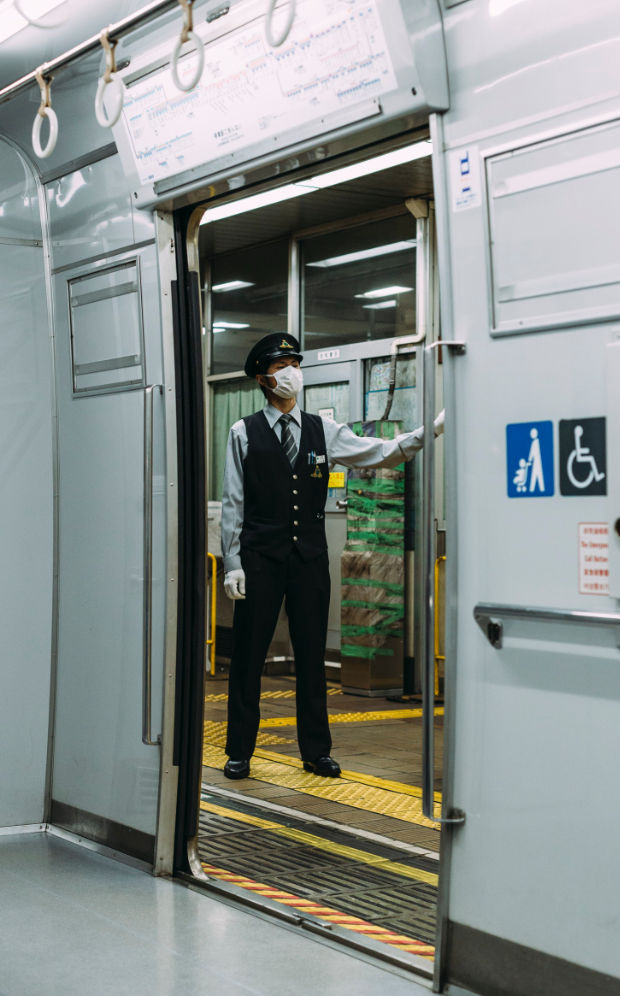
If you have not received all required doses of vaccine, a document showing that you have been infected within the past six months or tested negative for SARS-CoV-2 in a pre-travel test is also valid. Children under 12 years of age are exempt.
The Netherlands does not subject travelers arriving from countries of the European Union and the Schengen zone to entry controls. However, those landing from non-EU countries must present a certificate of full vaccination, recovery or proof of negative COVID-19.
The Dutch health authorities accept all vaccines authorized by the European Medicines Agency (EMA) and the World Health Organization (WHO). For those over 18 years of age, the three doses will be necessary if more than nine months have passed since the second jab.
To travel to Germany, it is no longer necessary to show a certificate of vaccination or recovery from COVID-19 or a negative test. All measures have been lifted as of June 1, 2022 for EU and external travelers.
The health measures will continue to apply to travelers from countries or areas of varying concern, but there are currently no countries or areas on the list.
There are no restrictions on travel to Austria from EU or non-EU countries.
At the end of May 2022, all COVID-19 travel restrictions in Belgium were lifted, so neither vaccination or recovery certificates nor COVID-19 testing are no longer required for passengers arriving from other European Union countries or from outside the Schengen area.
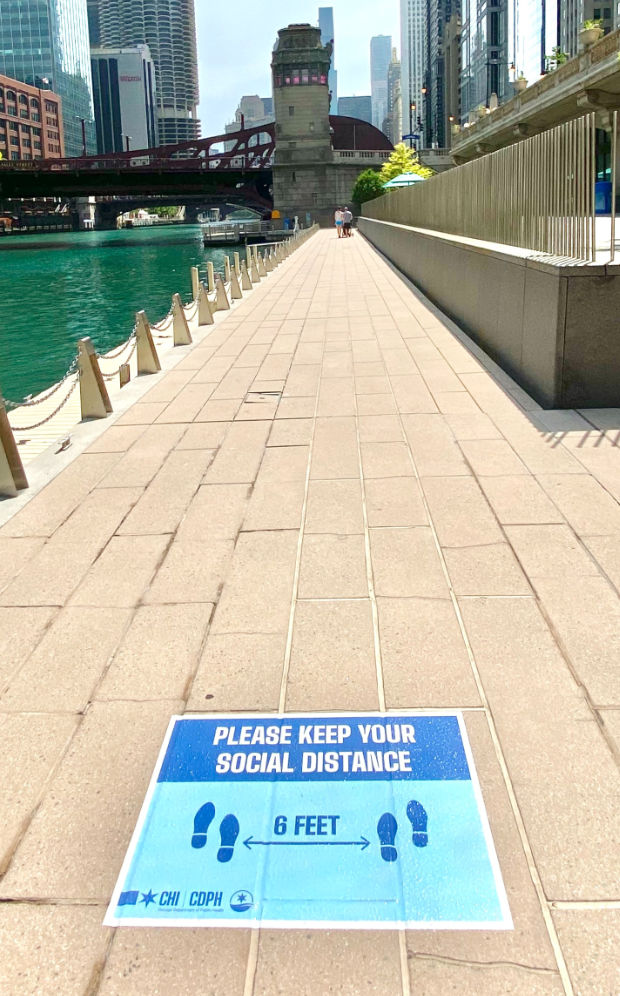
Effective June 12, 2022, CDC will no longer require passengers arriving by air from abroad to the United States to present a negative COVID-19 viral screening test or documentation of COVID-19 recovery prior to boarding their flight.
In this regard, it is imperative that before you travel, you make sure that you are aware of the requirements of each country. Keep in mind, to begin with, that most countries require complete covid vaccination schedules, negative PCR tests, forms and affidavits on symptoms and even quarantines.
There are country recommendations, depending on the evolution of the pandemic, at different risk levels.
Risk level 3-High: United Kingdom, Portugal, France, Belgium, Germany, Costa Rica, Japan and Argentina. In these countries, no pre-arrival covid test is required, but full vaccination and the use of face masks in indoor public places are mandatory.
Risk level 2-Moderate: Colombia, Bolivia, Peru, Morocco and Romania. In these destinations it is necessary to “be up to date with vaccinations against covid”, but the obligation to wear a mask indoors disappears.
Risk level-Low: Cuba, El Salvador and Egypt, among others. In these countries, with the elimination of the PCR test and covid passport requirement, masks are not required either, but vaccination is required.
Is it safer to travel by road than by plane?
People may meet other people more frequently when traveling than in their daily lives, which automatically increases the possibility of being exposed to someone with this virus.
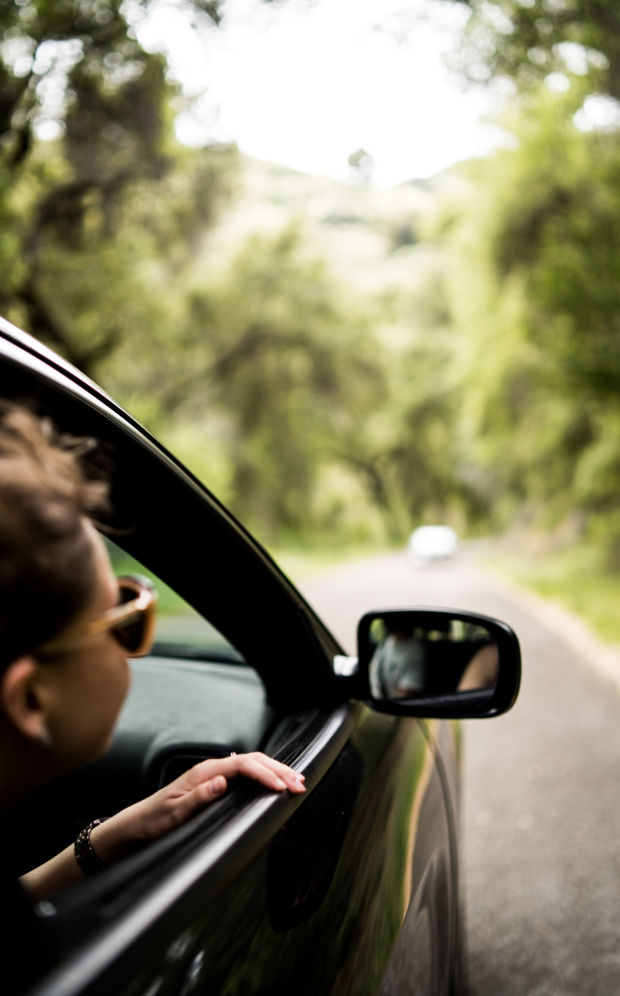
Milena Cruz: I think traveling is not a risk if it’s local and it’s in your car. right now you can be in England, in my case, so there are many opportunities to go out and see beautiful places.
Nadia: A lot of the people on the plane don’t pay attention. they don’t do what they should, the stewardesses get tired of always repeating the same thing and in the end, they give up because you are 8 or 9 hours on the plane with those people. the kids suddenly get out of control in your immediate environment… everyone without masks, the parents too because they try to calm them down. in the airports, the common rooms are full, everything is full of people who don’t pay attention. I really feel that traveling nowadays is a nightmare and I recommend it 100% only for important reasons and not to go on vacation… it is not pleasant at all.
Here are some recommendations when traveling by road.
Plan to stop as little as possible. Always keep and store face masks, hand sanitizer and disinfectant wipes in an easily accessible place, so you can use them during the trip if necessary. Prepare food and water to take with you. If you need to refuel, wipe handles or buttons with a disinfectant wipe before touching them. After refueling, use a hand sanitizer. When you arrive at your destination, wash your hands with soap and water for at least 20 seconds.
Viruses and children
Another question on many of our minds when thinking about this virus and unvaccinated children is that there are two types of risks to consider: the first is the direct risk to the child, as well as the risk of transmission to others.
Children develop severe covid-19 disease much less frequently than adults and die much less frequently. But, they also die… so it is a lie to think that they don’t get sick and they are not affected and they don’t lose this fight against this disease.
Milena Cruz: well, I think that children are not at high risk when they travel. in my personal experience, my 3 children had covid, at the same time we all had COVID and what we realized is that they had no symptoms. so, it seems to me that the immune system of children is super strong and what we should do is how we can support our immune system so that we can face the virus in one way or another.

Nadia: in general, I think children, as well as unvaccinated adults and not only during travel, are at a higher risk of contracting COVID, being unvaccinated is much riskier. although it is true that the probability of death is lower in children. it doesn’t occur to me, that parents accept that their child is simply the statistic. if a trip is not necessary, the risk is not necessary either.
It is important to keep in mind that children with underlying conditions such as obesity, diabetes and asthma may be at increased risk for serious illness with COVID-19. Children with congenital heart disease, genetic conditions, or diseases affecting the nervous system or metabolism are also at increased risk of serious illness with COVID-19.
On the other hand, because children often get colds, their immune systems may be primed to offer some protection against COVID-19. It is also possible that children’s immune systems interact with the virus differently than adults.
Conclusion
Widespread vaccination holds promise for ending the coronavirus disease pandemic (COVID-19) in 2019, but it won’t happen overnight. In the meantime, continue to take precautions to protect yourself and others if you must travel.
As the COVID-19 pandemic continues to wreak havoc, the need and desire to travel has increased. But, since this pandemic has come into our lives, everything has been turned upside down. it’s relentless, variants appear every time we think we have it under control and, of course, there is fear. we are at a crucial moment, since having the vaccines we can move from one place to another, but we cannot forget that being vaccinated does not mean we cannot get infected. being vaccinated is one more booster to fight the virus.


